Summary
Summary
The aim of the PESFOR-W COST Action is to synthesize knowledge, provide guidance and encourage collaborative research to improve Europe’s capacity to use Payments for Ecosystem Services (PES) to achieve Water Framework Directive (WFD) targets & other policy objectives through incentives for planting woodlands to reduce agricultural diffuse pollution to watercourses.
A brief description about this COST Action is given in the PESFOR Flyer 2019.
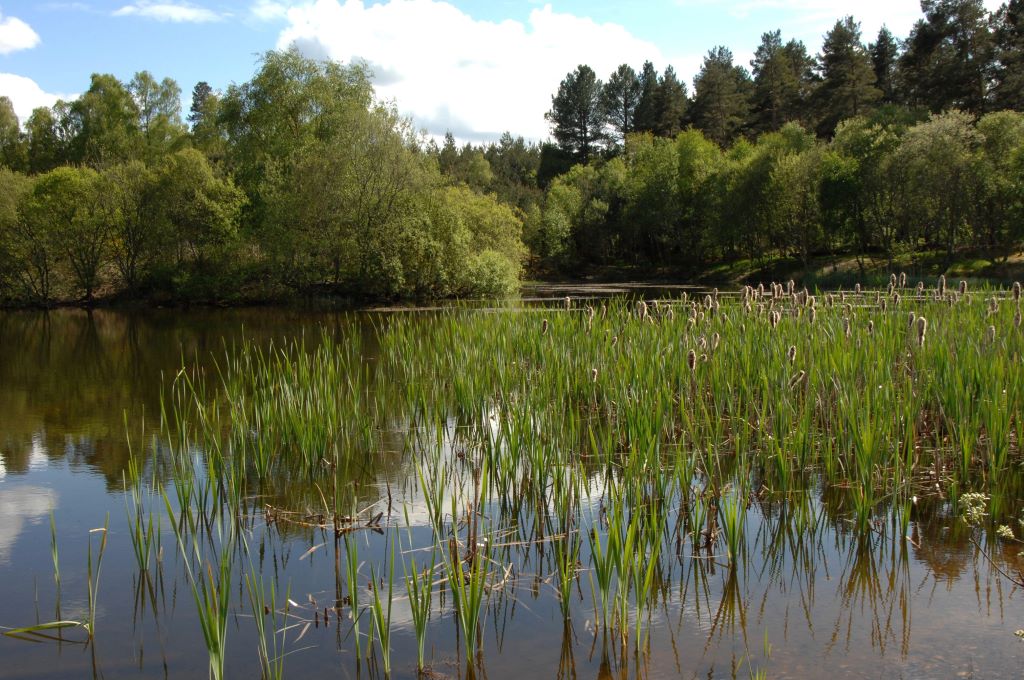
Description of the COST Action
The EU Water Framework Directive (WFD) aims to ensure restoration of Europe’s water bodies to ‘good ecological status’ by 2027. Many Member States will struggle to meet this target, with around half of EU river catchments currently reporting below standard water quality. Diffuse pollution from agriculture represents a major pressure, affecting over 90% of river basins. Accumulating evidence shows that recent improvements to agricultural practices are benefiting water quality but in many cases will be insufficient to achieve WFD objectives. There is growing support for land use change to help bridge the gap, with a particular focus on targeted tree planting to intercept and reduce the delivery of diffuse pollutants to water. This form of integrated catchment management offers multiple benefits to society but may incur significant costs to landowners and managers.
New economic instruments, in combination with spatial targeting, need to be developed to ensure cost-effective solutions – including tree planting for water benefits, are realised. Payments for Ecosystem Services (PES) are flexible, incentive-based mechanisms that could play an important role in promoting land use change to delivery water quality targets. PESFOR-W will consolidate learning from existing woodlands for water PES schemes in Europe and help standardize approaches to evaluating the environmental effectiveness and cost-effectiveness of woodland measures. It will also create a European network through which PES schemes can be facilitated, extended and improved, for example by incorporating other ecosystem services linking with aims of the wider forests-carbon policy nexus.
Further details can be found in the Memorandum of Understanding.
Status
The Action started on 18th October 2016 and finished on 17th April 2021.
Contacts
For further information, please contact:
- Chair: Dr Gregory Valatin
- Vice Chair: Prof Gebhard Scheuler
PESFOR-W Research objectives
- To combine practical, expert knowledge from the forestry, agriculture, water and financial sectors, to improve the design and environmental effectiveness of Woodlands-for-Water (W-for-W) PES, as a means of tackling the major problem of diffuse water pollution impacting on Europe and beyond.
- To characterise and critically evaluate the governance models and design structure of existing W-for-W PES schemes in the EU, with regard to
- service provision (supply);
- policy drivers;
- payments/markets (demand);
- types of governance (organizational arrangements)
- To evaluate the environmental effectiveness of targeted woodland planting in reducing a range of agricultural diffuse pollutants, including:
- sediment;
- nitrate;
- phosphate;
- pesticides;
- Faecal Indicator Organisms (FIOs)
- To develop a European PES repository of Case Studies that investigate lessons from existing W-for-W PES schemes, to share with practitioners, policymakers and stakeholders to promote best practice.
- To develop User Guidance on the suitability of pollutant, ecosystem service and catchment scale models to quantify the effectiveness of tree planting to reduce diffuse pollution; and provide advice on how PES schemes linking these can be applied.
- Capacity-building objectives
- To increase Europe’s capacity to use W-for-W PES as a policy tool including by developing a critical mass of skilled ‘experts’ (both researchers and users) able to commission and deliver well-designed and cost-effective schemes.
- To increase Europe’s capacity to tackle intractable diffuse pollution issues by providing training in technical and economic skills, particularly for Early Career Investigators (ECIs), the ‘PES-engineers’ of the future.
- To facilitate interaction between specialists with different skill sets (forestry, ecology, hydrology/hydrogeology, biophysical, economics, law, etc) needed for PES schemes, via a LinkedIn/Facebook ‘European PES Skills Directory’.
- To build stakeholder understanding of the potential for W-for-W PES schemes to meet WFD targets, as well as to deliver other water and wider objectives.
- To increase Inclusiveness Target Countries (ITC) access to international expertise and funding, identifying and promoting excellence in science and finance across Europe.
- To help address a current acute gender imbalance in forestry, agriculture, water and environmental finance sectors, aiming to exceed 40% female representation in the MC and 50% in Training Schools, with positive selection of women for leadership roles to an extent consistent with scientific quality and geographic balance.
Working Groups
Working Group 1 (WG1): PES Design and Governance
WG1’s primary objective was to characterize and critically evaluate the governance models and design structure of W-for-W PES. It examined:
- service provision (supply);
- policy drivers;
- payments/markets (demand); and
- types of governance.
Its aims were to identify organisational and policy arrangements that could increase the effectiveness of PES schemes and improve their governance. An institutional and governance analysis approach was adopted. Findings informed the work of WG2 and WG3 and fed directly into the User Manual. WG1 evaluated European W-for-W PES through expert meetings and STSMs, which compared and contrasted institutional settings, governance structures, payment mechanisms, contracts and procedures, different actors’ roles and expectations, and institutional and actor interactions. Evaluations also considered drivers, roles of national legislation and ‘green’ taxes in creating demand, property rights issues and quality assurance underpinning associated markets.
- Leader: Paola Gatto (paola.gatto@unipd.it)
- Vice Leader: Alessandro Leonardi (alessandro.leonardi@etifor.com)
Working Group 2 (WG2) – PES Environmental Effectiveness
WG2’s primary objective was to consider the environment effectiveness of woodland creation measures to reduce agricultural diffuse pollution. It developed and compared model performance, and provided a methodology and guidance on strengths and weaknesses of data and models to inform valuation approaches and assessments of cost effectiveness by WG3. The focus was to provide value ranges for a standard set of measures to reduce key diffuse pollutants, and to use these to populate look-up tables for use by pollutant and ecosystem services models. The Action ensured free-of-charge access to models; data ownership remaining with the source. Potential impacts on water resources were also assessed, particularly the ability of woodland creation to increase water use and how this might be influenced by climate change. Work was facilitated through STSMs, workshops and a training school.
- Leader: Tom Nisbet
- Vice Leader: Yiying Cao (Yiying.Cao@adas.co.uk)
Working Group 3 (WG3) – PES Cost-effectiveness
WG3’s primary objective was to consider the cost-effectiveness of woodland creation measures to improve water quality and providing other benefits. Work focused on:
- Synthesizing evidence on the economic performance of existing PES schemes in COST countries, including wider impacts (e.g., employment creation and carbon sequestration);
- Standardising economic and financial metrics;
- Quantifying costs (including agricultural opportunity costs) of woodland creation;
- Quantifying returns on investment, including the societal distribution of returns, and accounting for any AES/rural development program payments; and
- Preparing marginal abatement cost curves.
STSMs were used to develop best practice in estimating the cost and social effectiveness of W-for-W PES, and to identify topics for further study. A training school was held.
- Leader: Alex Chikalanov (ctmdevelopment@yahoo.com)
- Vice Leader: Paola Ovando (Paola.OvandoPol@hutton.ac.uk)
Working Group 4 (WG4) – Communication, Dissemination and Marketing
WG4’s main aim was to communicate, disseminate and market project activities and results: by developing a European PES Case Study repository which is shared with practitioners, policymakers and stakeholders, to promote best practice (making information more accessible to potential PES buyers, suppliers and intermediaries, including use of mapping tools); by publishing the ‘User Manual: Smarter Guidance on woodlands-for-water PES schemes’; and by an STSM exploring how to market PES schemes. WG4 synthesized results from WG1-WG3 and provided a stakeholder forum for dialogue about enabling factors and potential barriers in mainstreaming PES, such as discussing undesirable consequences (e.g., ‘commodification of nature’, implicit redistributions of property rights/social equity, or ‘crowding out’ of intrinsic pro-social motivations).
- Leader: Lars Högbom (lars.hogbom@skogforsk.se)
- Vice Leader: Rik De Vreese (rik.devreese+pesfor@gmail.com)
Case Studies
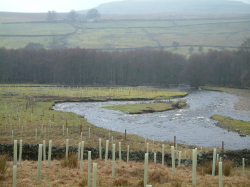
Case studies are important to help illustrate how woodland for water PES schemes operate in practice.
2021: Case study factsheets
2022: Severn Trent Clough Woodland PES Factsheet; Tamar Project PES Factsheet
The PESFOR-W Spatial Repository includes selected case studies on Woodland-for-Water PES schemes collected by COST PESFOR-W members during the action, with a focus on the countries participating in the action. Users can browse and select the cases through several search fields (intervention type, ecosystem type, country, state, etc.).
If you have an additional case study to be added to the repository, please contact rik.devreese+pesfor@gmail.com.
User Manual
Forests for Water Services: A Step-by-Step Guide for Payment Schemes
Lead author – T R Nisbet
Contributing authors – M-B Andreucci, R De Vreese, L Högbom, S Kay, M Kelly-Quinn, A Leonardi, M I Lyubenova, P Ovando Pol, P Quinteiro, I Pérez Silos, G Valatin.
The User Manual has been translated into various languages. Different versions available here:-
PESFOR-W Skills Database
Our PESFOR-W online Skills Database includes all members and associated persons that have expertise in our theme and who have indicated that they wish to be part of this.
For amendments to the database or further information please contact rik.devreese+pesfor@gmail.com.
PESFOR-W Short Term Scientific Missions
Short Term Scientific Missions (STSMs) were exchange visits aimed at strengthening existing networks and fostering collaboration between researchers that contribute to the objectives of the Action.
Requirements:
- Applicants must have been engaged in an official research programme as a PhD student or postdoctoral fellow, or employed by/affiliated to an institution with a research remit.
- Financial support for STSMs lasting three months or less was limited to a maximum of €2500.
- For Early Career Investigators (ECIs – i.e., those within 8 years of completing a doctorate) longer STSMs lasting between 3-6 months were an option, with the maximum financial support available for these being €3500.
- STSMs had to start and finish within one of the Action’s 6 or 12 month Grant Periods. (It was not possible for an STSM to start in one Grant Period and finish in another.)
- Within 4 weeks of the STSM being completed, the Grantee had to have submitted a scientific report to the Action Vice Chair, STSM Co-ordinator and the Host institution (with payment of the Grant subject to the report being approved).
Criteria for selecting STSMs included:-
- Relevance to the Action and Topic of the call.
- Quality of the work plan
- Output(s) proposed
- COST policies on promoting gender balance, enabling ECIs and broadening geographical inclusiveness.
- Budget (cost in relation to work proposed).
Priority topics included:
- Engagement with policy-makers on best governance of new woodlands for water PES schemes and exploring potential for citizen science to monitor schemes: developing guidelines for qualitative data collection and stakeholders’ engagement
- Methodology and evidence review on assessing the effectiveness of woodland creation measures and providing guidance on the strengths and weaknesses: opportunity mapping;
- Forest water interactions under climate change and robust adaptive strategies – see PDF
- Review of demand-side and climate change factors influencing cost-effectiveness of woodlands for water PES;
- Socio-economic evaluation of woodlands for water PES schemes;
- Collecting data on woodlands for water PES schemes for Case Study fact sheets;
- Analysing forest owners’ attitudes and perspectives towards adopting PES schemes
- Analysing biophysical, governance and social-cultural preconditions for PES
Training Schools
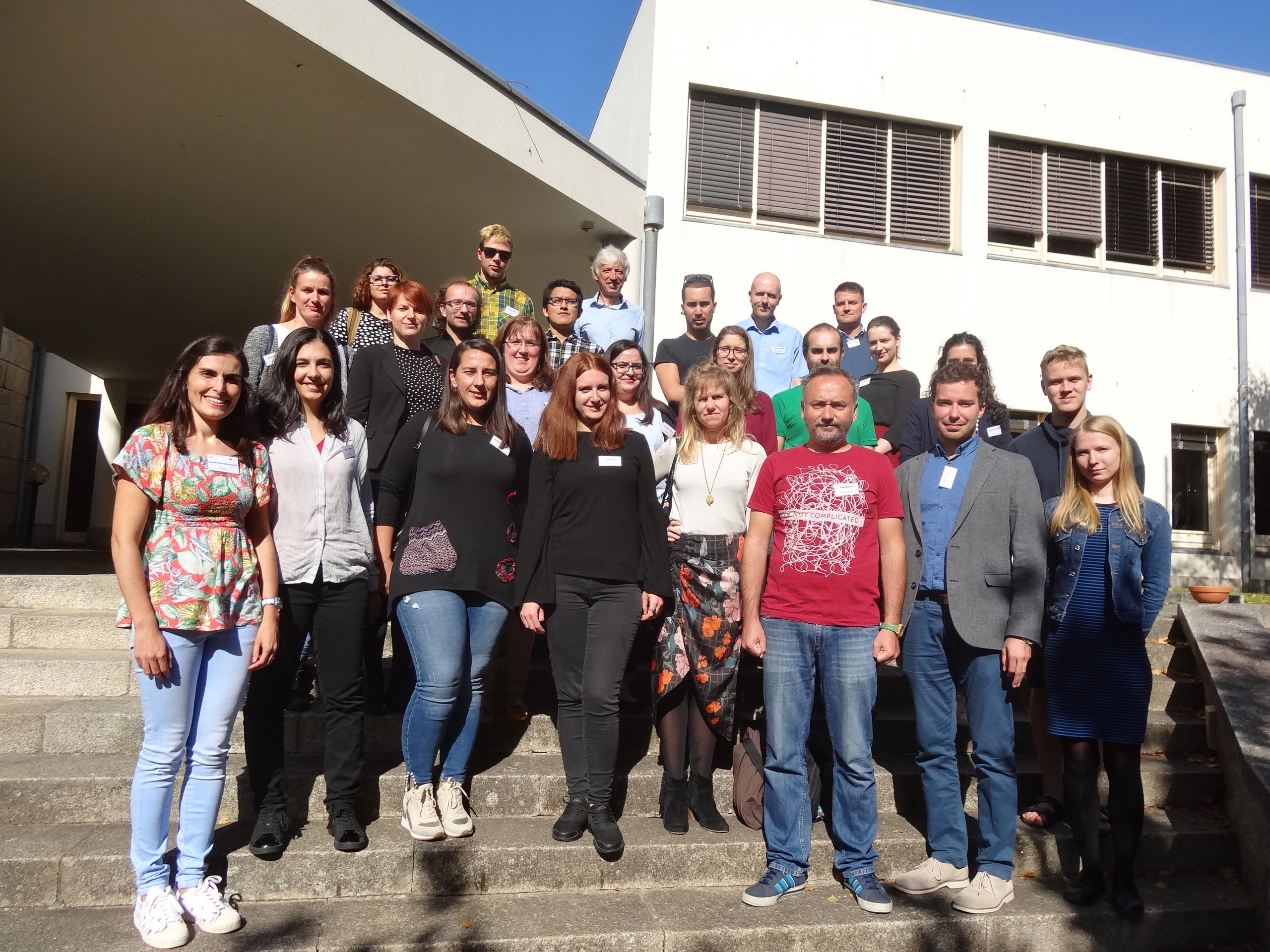
The Training Schools aimed to facilitate capacity building on a topic relevant to the theme of the respective COST Action through the delivery of intensive training on a new or emerging subject. They were designed to offer familiarisation with unique equipment or expertise and were typically, although not exclusively, used for the benefit of ECI and PhD students. They were not intended to provide general training.
PESFOR-W Meetings
2016
- 1st Management Committee (MC) meeting – Brussels / 18th October 2016
2017
- First Full Meeting of PESFOR-W – Nancy, France / 28th February – 1st March 2017
- Second Full Meeting OF PESFOR-W – Opatija, Croatia / 19 October 2017
2018
- Third Full Meeting of PESFOR-W – Padova, Italy / 12-15 March 2018
- Ireland’s Native Woodlands Conference – Delany, Ireland / 30 April – 1 May 2018
- Fourth Full Meeting of PESFOR-W – Stavanger, Norway / 2 – 5 July 2018
- Fifth Full Meeting of PESFOR-W – Albena, Bulgaria / 25 – 27 September 2018
- PESFOR-W Training School – Porto, Portugal / 23 – 26 October 2018
2019
- Sixth Full Meeting of PESFOR W – Killarney, Co. Kerry, Ireland / 4 – 6 June 2019
- Seventh Full Meeting of PESFOR W – Bratislava, Slovakia / 22 – 24 October 2019
2020
- Management Committee of PESFOR W – held online – minutes of the meeting / 28 September 2020
- User Manual & Action Plan Stakeholder online workshop hosted by Forest Research / 10 December 2020
- User Manual Stakeholder online event – hosted by National Forest Centre, Zvolen / 10 December 2020
2021
- User Manual & Action Plan Stakeholder online workshop hosted by European Forestry Institute (EFI) / 2 February 2021
- PESFOR-W Final Conference online hosted by European Forestry Institute (EFI) / 17 -18 March 2021
Working Group Meetings:
The following Working Group meetings were held.
2018
- Working Group 3 meeting – San Sebastián, Spain
16 – 17 October 2018
Writing Workshop, Working Group 3 – Donostia, San Sebastián, Spain
List of Participants
Programme
2019
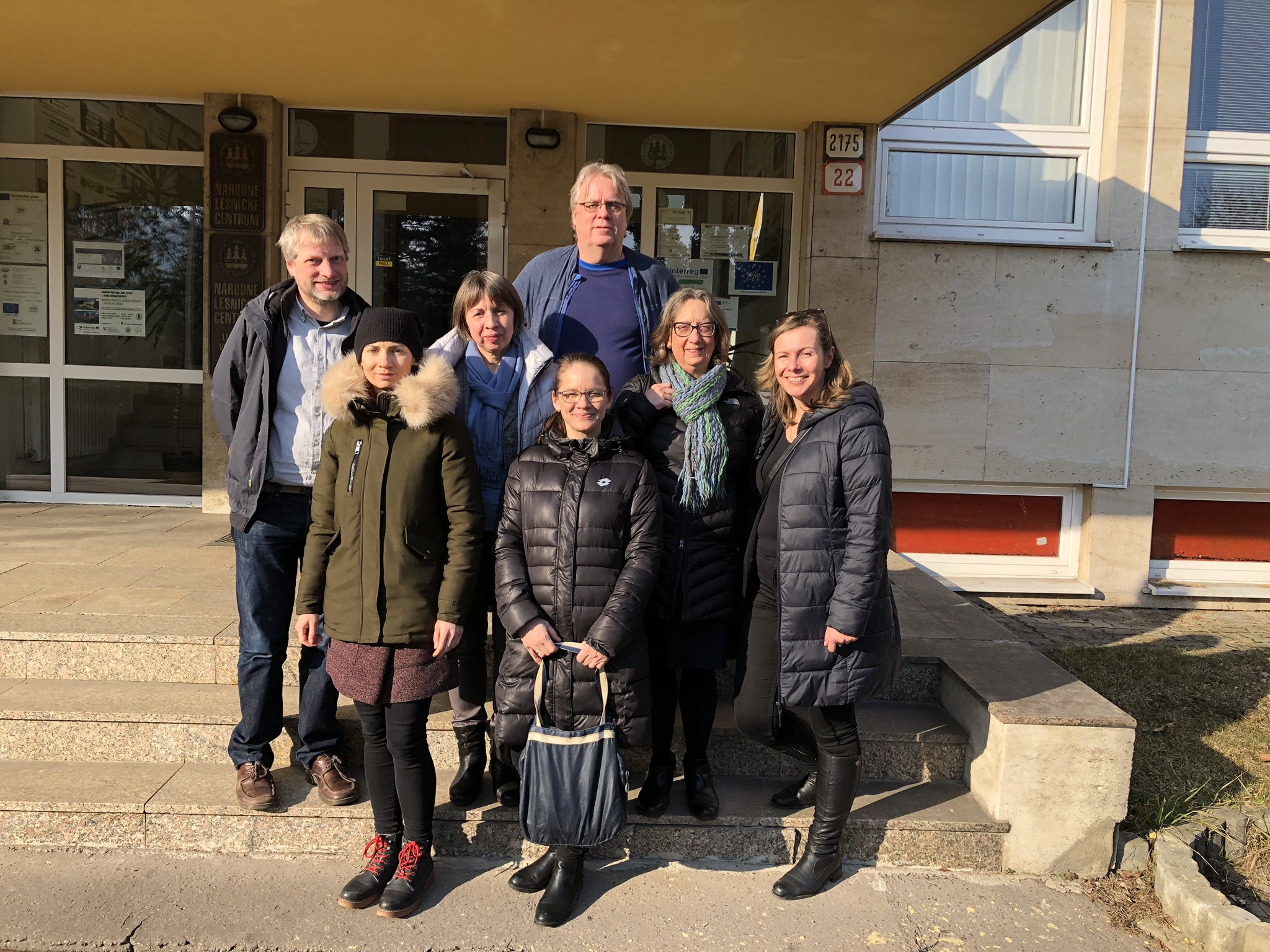
- Working Group 1 meeting – Zvolen – Slovakia
18 – 19 February 2019
National Forest Centre, Forest Research Institute, Zvolen, Slovakia
List of participants
Report of meeting - Working Group 4 meeting – Uppsala, Sweden
11 – 12 March 2019
‘Wow’ factor in developing woodlands for water PES schemes – Uppsala, Sweden
List of participants
Programme - Working Group 2 and 3 meeting – Odense, Denmark
20 – 22 March 2019
Joint Working Group 2 and 3 workshop, Odense, Denmark
List of Participants
Programme
Meeting Notes - Working Group 4 meeting – Brussels, Belgium
26 – 28 March 2019
List of Participants
Programme
Core Group
The Action had a Core Group which prepared MC decisions and, where not of strategic importance or legally requiring approval by the MC, took decisions on behalf of the MC. This allowed for rapid assessment of key aspects relating to the work of PESFOR-W; these include choice of meeting venues and dates as well as encouragement and administration of Short Term Scientific Missions.
- Chair – Dr Gregory Valatin, Forest Research, Alice Holt Lodge, Wrecclesham, Farnham, Surrey, GU10 4LH, UK
- Vice Chair – Prof. Dr Gebhard Schueler, Research Institute for Forest Ecology and Forestry Rheinland-Pfalz, International Projects and Networking, Hauptstrasse 16, D-67705, Trippstadt / Germany – (gebhard.schueler@wald-rip.de)
Working Group 1 – Design and Governance
- Leader – Paola Gatto
- Vice Leader – Alessandro Leonardi
Working Group 2 – Environmental Effectiveness
- Leader – Tom Nisbet
- Vice Leader – Yiying Cao
Working Group 3 – Cost-Effectiveness
- Leader – Alex Chikalanov
- Vice Leader – Paola Ovando Pol
Working Group 4 – Communication, Dissemination & Marketing
- Leader – Lars Högbom
- Vice Leader – Rik De Vreese
- STSM Co-ordinator – Zuzana Sarvasova
- STSM Vice Co-ordinator – Kazimierz Banasik
See here for a list of Core Group Meetings
Management Committee Observers
Near Neighbour Countries
- Institut Agronomique et Veterinaire Hassan II (Morocco)
- Ukrainian National Forestry University (Ukraine)
- Al-Hussein bin Talal University, Maan (Jordan)
- National Institute for Agricultural Research of Tunisia (INRAT) (Tunisia)
- Ukrainian Research Institute for Mountain Forestry (Ukraine)
International Partner Countries
- Beijing Forestry University (China)
- Scion (New Zealand)
- University of Shiga Prefecture (Japan)
International Organisations
- European Forestry Institute
- UNECE/FAO
Funders and partners
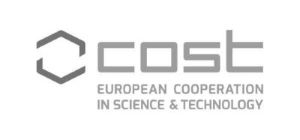 COST (European Cooperation in Science and Technology) is a funding agency for research and innovation networks. Our Actions help connect research initiatives across Europe and enable scientists to grow their ideas by sharing them with their peers. This boosts their research, career and innovation. www.cost.eu
COST (European Cooperation in Science and Technology) is a funding agency for research and innovation networks. Our Actions help connect research initiatives across Europe and enable scientists to grow their ideas by sharing them with their peers. This boosts their research, career and innovation. www.cost.eu
 Funded by the Horizon 2020 Framework Programme of the European Union – EU COST Action CA15206.
Funded by the Horizon 2020 Framework Programme of the European Union – EU COST Action CA15206.
